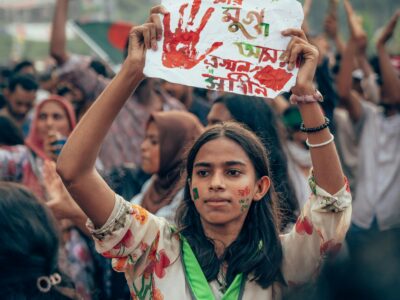GHRD Research Team

by Ksenia Chernaya, retrieved by Pexels, 15 April 2019
The Indian territory of Kashmir was the victim of harsh cultural repression by the Indian Government last February. The police raided libraries and bookshops confiscating more than 600 books written by Islamic scholars as they were considered a threat to the country.
Human rights defenders and NGOs protecting human rights often highlight how India disregards the rights of ethnic and religious minorities. Discrimination against minorities can be performed through violent actions like aggression or street fighting, and also through cultural repression.
An outstanding example of cultural repression took place in the Kashmir Indian region in February 2025, when hundreds of books written by Islamic scholars were seized from stores by the police.
According to Indian authorities, most of the 650 confiscated books were written by Abul A’la Maududi, a famous 20th-century Islamic scholar who founded an Islamic organisation banned in Kashmir. The police justified their actions as part of a series of efforts aimed at suppressing dissent carried out in different parts of the country. Furthermore, the police explained that such raids on libraries were based on reliable information about the illegal sale and distribution of literature promoting the ideology of a banned organisation. The police concluded that the books violated certain regulations of the Indian Criminal Code and, thus, the buyers of these books would face legal consequences.
The books were published by an important publisher based in New Delhi and affiliated with the Indian branch of Jamaat-e-Islami, one of the largest religious and political organisations in the country.
Jamaat-e-Islami has been banned in Kashmir since 2019 when it was declared an “unlawful association”. Since then, the repression of human rights in the regions with the most followers of the organisation has harshened.
Leaders from the organisation have criticised the raids from the police, defining them as unjust, unconstitutional, and a clear violation of fundamental human rights. Furthermore, the leaders argue that the books are legally published in other Indian states and the current approach of the authorities does not fall within the scope of a legitimate investigation. According to these leaders, these book seizures are the latest attempt to marginalise the communities living in Kashmir and enhance the disputes between the region and the national governments that began in 1989 and have been ongoing since (The Guardian, 2025).
Witness reports highlight that the police officers carrying out the raids wore plain clothes and did not identify themselves as officers. Raids began in the main city of the region, Srinagar, on Saturday, February 15th and quickly spread to all major cities of the region.
Pakistan’s Foreign Ministry said that these raids were the latest measures to stop dissent and intimidate local people. In fact, although Kashmir’s independence was enshrined in the Indian Constitution until 2019, several Indian government officials, including Prime Minister Narendra Modi, have tried to restrict the liberties and human rights of the people living in the region (Voa News, 2025).
The Indian national government has not addressed the Kashmir raids yet, but leaders from Kashmir say that the seizure of books will not prevent people from reading those books online. This shows that despite the repression, Kashmiri people are determined to maintain their traditions.
Sources and further reading:








Comments